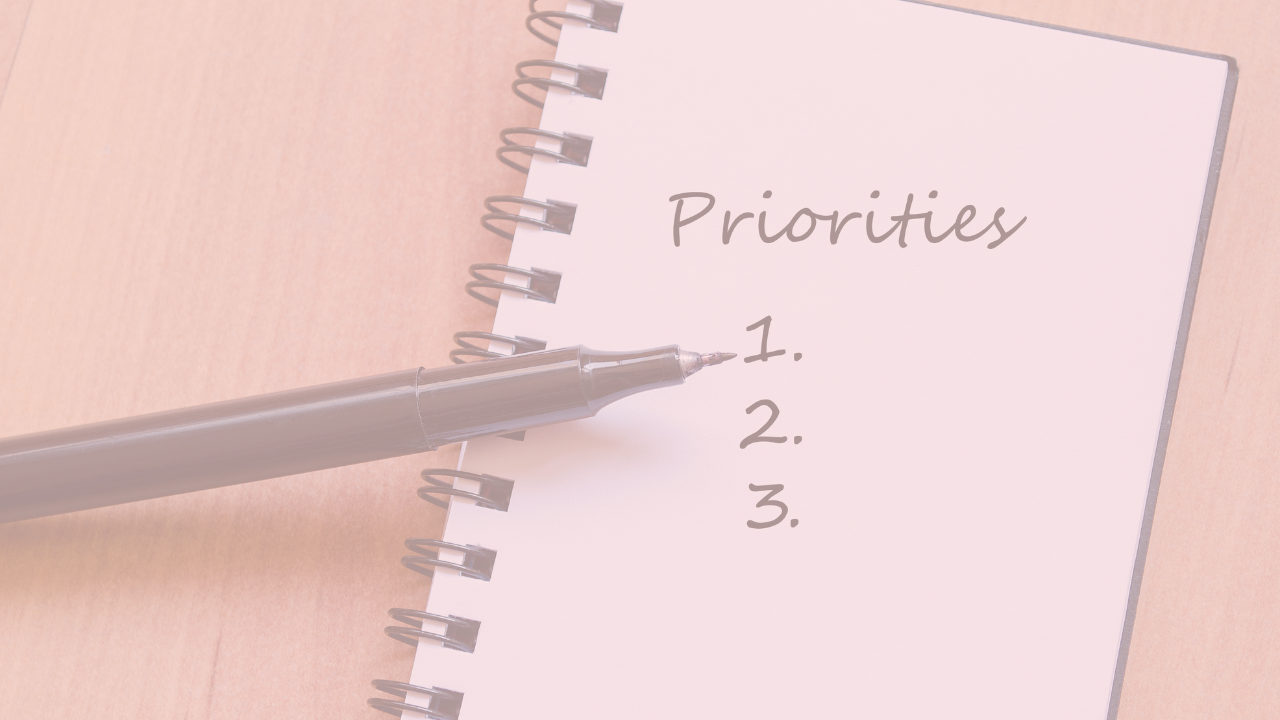My Thoughts on the “Top 3 Priorities” Approach to Productivity

I rarely take the time to address productivity tips that don’t work, but in this post, I want to break down exactly why the common “Top 3 Priorities” approach to a productive day doesn’t resonate with me and why it doesn’t work for a lot of women.
I'm explaining what this popular planning approach is, why it fails many people, and what you need to do instead.
Also, I want to assure you that if you’ve attempted to use this approach (as I did) and it hasn’t worked for you, know that it’s not your fault and you can effectively embrace planning and prioritizing your days in a different way.
The Top 3 Priorities Approach
Many productivity and planning coaches teach with a focus on how to make sure you're getting the most important stuff done each and every day.
One way that they guide people to do this is with the top three priorities method. This approach to having a productive day basically boils down to waking up each morning, choosing your top three priorities, and using those three things as your marching orders for the day.
With this approach, you focus on those three priorities and do what needs to be done to move the needle forward on them.
On the surface, this isn’t a bad idea! There’s a ton of value in knowing what is most important to you and how to focus on those things.
Here’s the Problem With This Approach
If your life is anything like mine as a mom, wife, and business owner, your days tend to be fluid, and each of your roles are very intertwined.
I don’t go to an office and focus on work for 8 hours and then come home to focus on my personal life. I work from home, and the lines aren’t always rigid between those different pieces of my day.
On any given day, I may only have small, 30-minute windows of time when I can try to fit in my prioritized tasks. And if I approach those spaces in my calendar with only the big things in mind, I’m going to end up wasting those small pockets of time doing things such as scrolling social media because I know 30 minutes simply isn’t long enough to tackle a huge priority task.
This means that time will be wasted and I’ll likely end the day feeling like I’ve failed to accomplish much.
So What’s the Alternative?
This is why I am beyond passionate about educating people on the importance of weekly planning.
When you create a weekly plan, you comprehensively look at everything you have going on and set your priorities across the entire week. Then, you can intentionally group and structure tasks so that you get the most important things done in a non-stressful, meaningful way.
This is significantly more productive (and fulfilling) than waking up each day and choosing three priorities without any real understanding of your available time.
Instead, with constructive weekly planning, you can intentionally tackle several smaller priority tasks on days you have shorter pockets of time and purposefully address those bigger, higher priority tasks on days when you know your schedule is more open.
There are days in my week when a lot of things are getting done, but none of them are the most important things for that week. And that's okay because that's the reality of living a very integrated life — which many women are doing.
The incredible thing about the weekly approach to planning is that on the days that you can’t complete your bigger tasks, you can still feel productive and know that the higher priorities you’ve identified both personally and professionally will be done in their scheduled times.
So, if you’ve been struggling to make daily priorities work well for you, I invite you to approach your planning from a weekly perspective and see what a difference it will make!
For even more tips and exercises on all things time management, organization, and productivity, check out more blogs or podcast episodes.


